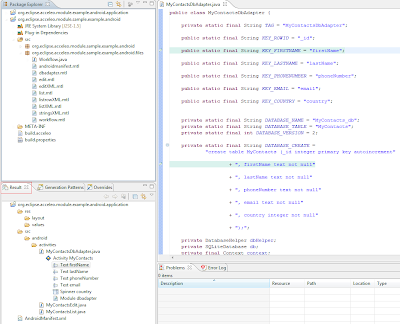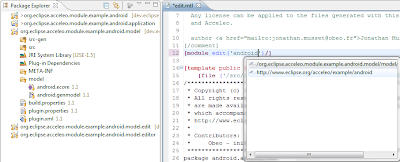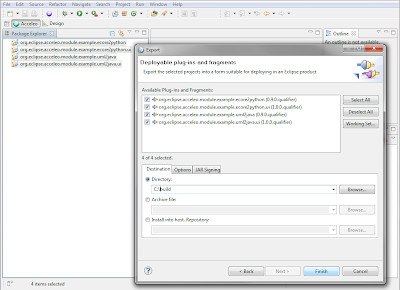I was preparing the Eclipse Helios Release review material for Acceleo 3.0 and I had to compute the following information... I thought it could be interesting to share these Non-Code aspects with the Acceleo community...
JUnit Tests metrics :
- 706 unit tests are launched on every build
- 1219 unit tests are launched every day
JUnit Tests Code coverage :
- 71 % for the code generation engine
- 84 % for the MTL compiler
- 29 % for the Eclipse UI - We plan to reach 50% in the next few weeks
Code quality information :
- Checkstyle is activated on each distinct plug-in
- Eclemma is used on a regular basis to improve test coverage
- Yourkit is used on a regular basis to improve performances
- Javadoc represents more than 46% of the Java source code
A code analysis page is available on Ohloh.
Don't hesitate to become a friend ;-)










